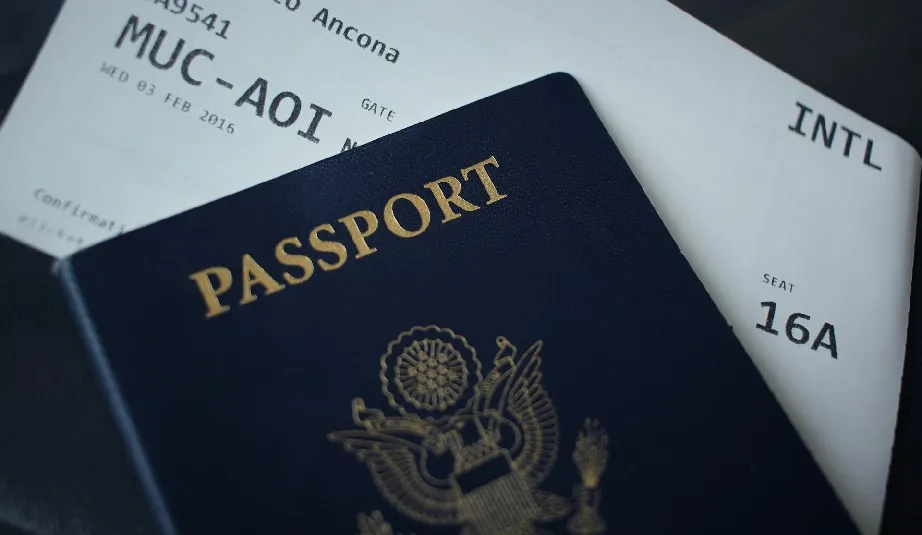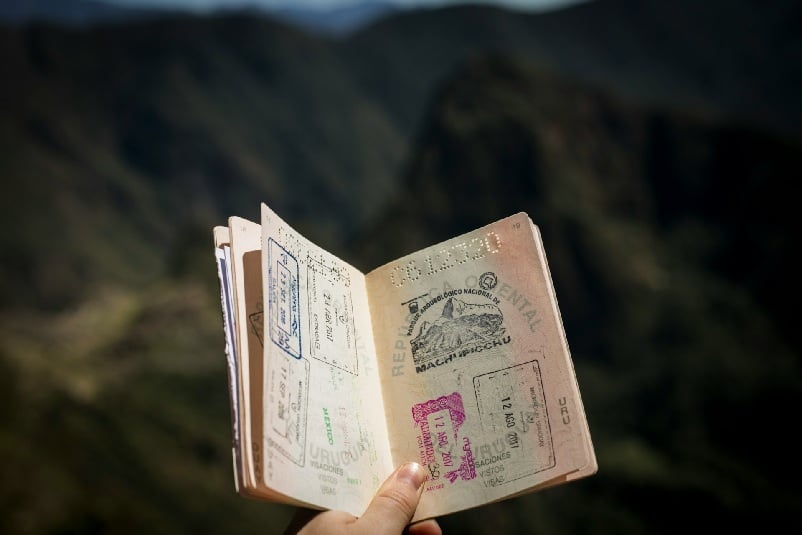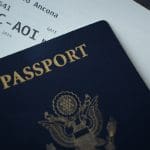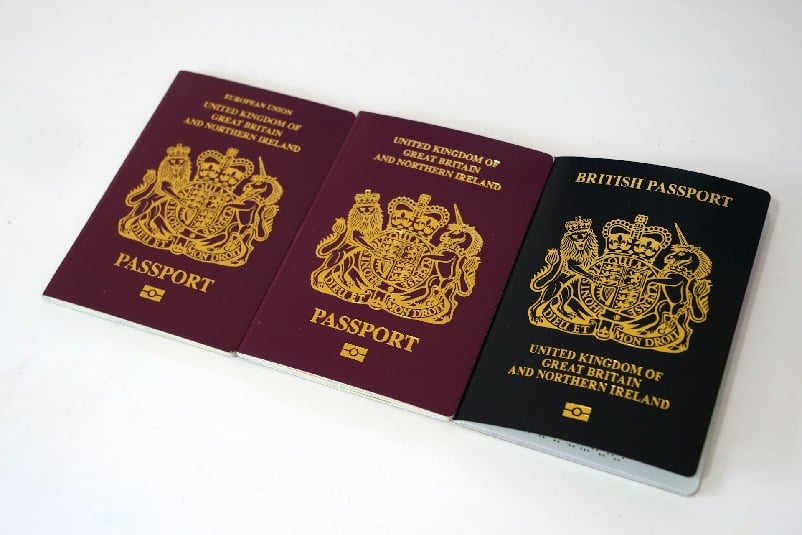Most Powerful Passport in the World: 2025 Rankings
Singapore’s passport is the most powerful globally in 2025, with visa-free access to 193 destinations. Find out your country’s rank on the Global Passport Ranking and how it impacts your travel freedom and access to global opportunities.
Immigration Advice Service (IAS) provides bespoke immigration, travel, and relocation assistance. Contact us today at +44 (0)333 414 9244, online, or via email.
What Makes a Passport Powerful?
A passport is not just a travel document; it carries the weight of a country’s political, economic, and diplomatic might.
In terms of the global index power ranking, a passport’s power is determined primarily by the number of countries its holders can access without a visa. The more destinations a passport can access without needing a visa or special entry clearances, the higher it climbs the global passport power ranks, and vice versa.
Here are some contributing factors that can impact the number of visa-free destinations a passport has:
- Diplomatic Relations: When a country has strong diplomatic ties or international trade relations with other countries, they are likely to have favourable visa policies for its citizens, thereby increasing the number of visa-free travel destinations
- Economic Factors: Countries with a relatively stable economy and high GDP are perceived to pose a lower risk of overstaying, so more countries are willing to allow their citizens visa-free access to their country
Global Passport Power Rank
Global passport indexes typically rank passports according to the number of countries their holders can visit visa-free and their diplomatic relations. Some indices also consider the desirability of each country’s accessible destinations for economic mobility, investment, and quality of life.
A country’s passport rank indicates the ease or difficulty of global mobility and international trade for its citizens. Citizens of countries with powerful passports enjoy ease of travel for short-term business, tourism, education, or work.
Processing long-term resident visas is also easier for nationals of countries with powerful passports, as consular and immigration authorities often consider passport strength when assessing visa applications. Applicants from low-ranked passport countries may face stricter scrutiny, more documentation requirements, or lower visa approval rates due to perceived overstay or asylum risks.
Countries climb up the ranks as they gain access to more destinations and strengthen diplomatic influence. They go down the ranks as their diplomatic ties weaken or their access to destinations drops.
Several investment, global mobility, and immigration firms publish passport rankings. However, the two most popular Global Passport Rankings are:
- The Henley Passport Index
- Arton Capital Passport Index
The Henley Passport Index is the oldest and most used. It releases quarterly global passport rankings, while Arton uses data from individual governments’ portals to rank passports in real-time, year-round.
Historic Passport Power Rank
Passport strengths change over time in terms of visa-free (and visa-on-arrival) access. These changes are a result of shifts in global diplomacy and geopolitical alliances.
In the early days of passport ranking, the US, UK, and EU countries dominated because of their strong diplomatic influence and economic strength. The US and UK jointly held the first rank as the most powerful passports in 2014, while the UK ranked no. 1 in 2015.
However, both countries have consistently fallen down the ranks since then.
Asian countries like Japan, Singapore, and South Korea began climbing up the ranks in the 2010s as they strengthened their economies and entered strategic bilateral agreements. By the late 2010s, Japan had occupied the no.1 spot on the Henley Passport Index multiple times.
Asian countries continued the climb in the 2020s. Singapore climbed to the number 1 spot for the first time in 2019, clinching and holding the spot again in 2024 through 2025. UAE made the most aggressive climb, moving 32 places from 42nd in 2015 to the top 15 by 2024 and eighth by 2025. It gained 72 visa-free destinations between 2015 and 2025.
South American countries like Brazil and Chile have also improved their ranks through regional agreements and broader trade alliances. Whereas Russia and Belarus have declined in rank due to geopolitical tensions.

Definition of the Index
The Henley Passport Index ranks passports according to the number of destinations their holders can access without a prior entry permit or visa. The index was launched by Henley Global Partners in 2005 as Henley & Partners’ Visa restriction Index, but was renamed Henley Passport Index in 2018.
The Index uses exclusive data from the International Air Transport Association (IATA), the largest travel information database. It evaluates 199 passports against 227 destinations and creates a rank based on the number of destinations each passport can access without a visa. The index is updated monthly and is one of the primary reference tools for assessing countries’ place on the global mobility spectrum.
Henley Global combines the index data with World Bank GDP data to get the Henley Passport Power (HPP) – the percentage of global GDP a passport grants its holder visa-free access to.
Method of Ranking
Henley Passport Index gets exclusive and official data from the International Air Transport Association (IATA), and monitors government portals and major news agencies for changes in visa policies. It uses these data to assess 199 passports against 227 destinations worldwide.
In calculating scores for the index:
- Only normal passports are considered. Diplomatic, emergency, and temporary passports/travel documents do not count
- Visa-free refers to destinations that a country’s passport holders can travel to without a visa. Destinations requiring an electronic travel authorisation (ETA) or granting a visa on arrival are also considered visa-free destinations because they do not require pre-departure government approval
- Passport holders must spend at least three days in the destination, not just transiting through
- Passport holders must be adult citizens of each country travelling alone and not as part of a tourist group
Each passport gets 1 score for each destination it can access visa-free, with an ETA, or get a visa on arrival. It scores 0 for each destination where a visa is required to enter. It also receives a zero score if it requires pre-departure approval to obtain a visa on arrival. The total number of destinations each passport can access without a visa is its visa-free score, and determines its rank on the index.
Global Passport Rankings in 2025
Henley Passport Index released its ranking for Q2 2025 in July, and there have been surprising climbs up and down the list from Q1.
Singapore retained its place as the world’s most powerful passport, granting its holders visa-free access to 193 destinations out of 227. It is followed closely by Japan and South Korea in second place, each granting its citizens visa-free entry to 190 destinations.
Seven EU countries tie in the 3rd place – Denmark, Finland, France, Germany, Ireland, Italy, Spain – with 189 visa-free destinations. Another seven EU passports share 4th place – Austria, Belgium, Luxembourg, Netherlands, Norway, Portugal, Sweden – with 188 destinations. New Zealand shares 5th place with Greece and Switzerland.
The UK ranked 6th on the index, moving down one place from its 5th in Q1. Australia, the Czech Republic, Hungary, Malta, and Poland shared 7th place. The UAE moved up two spots from 10th in Q1 to 8th in the new ranking, sharing its new position with Canada and Estonia. Croatia, Latvia, Slovakia, and Slovenia came in 9th, while the U.S. shared tenth place with Iceland and Lithuania.
Afghanistan leads the bottom-ranked passports at 99th, with visa-free entry to only 25 destinations. Syria follows at 98th place with 27 destinations, and at 97th place, Iraq, with 30 visa-free destinations.
Arton Capital ranks passports of the United Nations 193 member countries of the United Nations and six territories. The UAE ranks no.1 on its Global Passport Power Ranking, with 179 visa-free destinations, followed by Spain in 2nd place with 176 visa-free destinations. Singapore shares 3rd place with Belgium, France, Germany, Finland, Italy, Denmark, Ireland, Netherlands, Luxembourg, Norway, Austria, Greece, and Switzerland.
Henley Passport Index ranking 2025
According to Henley Global Passport Ranking, the most powerful passports in 2025 are:
- Singapore – 193 destinations
- Japan and South Korea – 190 destinations
- Denmark, Finland, France, Germany, Ireland, Italy, and Spain – 189 destinations
- Austria, Belgium, Luxembourg, The Netherlands, Norway, Portugal, and Sweden – 188 destinations
- Greece, New Zealand, Switzerland – 187 destinations
- United Kingdom – 186 destinations
- Australia, Czechia, Hungary, Malta, and Poland – 185 destinations
- Canada, Estonia, and the United Arab Emirates – 184 destinations
- Croatia, Latvia, Slovakia, and Slovenia – 183 destinations
- Iceland, Lithuania, and the United States – 182 destinations
- Liechtenstein and Malaysia – 181 destinations
- Cyprus – 178 destinations
- Bulgaria, Monaco, and Romania – 177 destinations
- Chile – 176 destinations
- Andorra – 171 destinations
- Argentina, Brazil, and San Marino – 170 destinations
- Hong Kong – 169 destinations
- Israel – 168 destinations
- Brunei – 164 destinations
- Barbados – 163 destinations

Asian Nations See Highest Improvement In Passport Power Ranking
Asian nations are the most prominent and highest climbers on the passport power index in the past decade. From low rankings in the 2000s, Asian nations have grown to dominate the global mobility spectrum.
Japan, Singapore, and South Korea reached the top 5 positions in the late 2010s and have since remained there. Japan made it to no.1 for the first time in 2018, shared the position with Singapore in 2019, and has maintained it since, only dropping to 2nd place in 2025. South Korea came up 2nd in the same year, dropped to 3rd in 2020, and has held 2nd place since 2021.
However, the most aggressive climber on the Asian continent in the last decade is the United Arab Emirates. It moved 31 places from 42nd in 2015 to 11th place in 2024. It continues its upward move in 2025, climbing to 10th place by January 2025 and 8th place by July. The UAE is one of the highest passport mobility upgrades in the past decade, having gained 72 new destinations within that time due to strategic diplomacy and visa-waiver deals.
Another notable Asian climber is Saudi Arabia, which moved four places up to 54th by adding four new destinations in 2025. India also moved from 85th to 77th place with two new destinations, while China ranked 60th place with 83 visa-free destinations, moving up from 67th place with 75 visa-free destinations in 2020. Its visa-free destinations do not include EU’s Schengen Area.
China’s rise is tied to its recent international relationships with South American and Gulf countries. Citizens of the Gulf Cooperation Council member states – Saudi Arabia, Bahrain, Kuwait, and Oman- can now enjoy visa-free travel to China. China’s visa-waiver agreement also applies to South American countries like Brazil, Peru, Chile, Argentina, and Uruguay.
Asia’s dominance of the global mobility spectrum indicates its increasing openness, stronger economies, and improving geopolitical alliances. The continent is leading the global mobility race.
The U.S. and UK Passports Continue to Lose Dominance
The UK and U.S. passports dominated the global mobility spectrum from the 2000s to the mid-2010s, thanks to their economic power and international influence. However, their power has steadily declined since the late 2010s due to stricter immigration policies and decreasing global influence.
In 2014, the U.S. and the UK shared the number 1 place on the Henley Passport Index. In 2015, the UK maintained 1st place while the U.S. dropped to 2nd place.
The U.S. continued downward and almost dropped off the top 10 in 2025. It shared the 10th rank with Iceland and Lithuania, dropping one place from its 9th position in Q1, the lowest in the two decades of the index’s existence. The decline of the U.S. passport can be traced to souring global relations and influence and increasingly unfriendly immigration policies.
The UK ranked as the most powerful passport worldwide in 2014 and 2015. However, it dropped off this position in 2016 and hasn’t regained it in 10 years. In the past decade, it hovered between 5th, 6th, and 7th places, climbing to 4th place in 2024, but dropping back to 6th place in 2025.
While the UK still fares better than the U.S., its decline indicates that the traditional global leaders are losing their place and emerging economies, particularly from Asia, are gaining dominance.
Significance of Passport Ranking For Immigration and Global Mobility
Your passport’s global mobility ranking determines how easily you can travel and access global opportunities. The stronger your passport, the easier your access to international recreational, business, work, and educational opportunities; the weaker your passport, the more difficulty you’ll face in accessing these opportunities.
Nationals of countries with low-ranking passports often go through rigorous processes to obtain visas to visit most countries for as little as 3 days, and usually have low visa-approval rates. The process is even more challenging when applying for long-term visas, as they may face further scrutiny during the application process.
If you’re a citizen of a country with limited global mobility, you can enhance your access to global opportunities by obtaining a second citizenship in a country with a stronger passport. You can do so by getting an employment offer in your desired destination, through family-sponsorship if you already have close family in the country, or through a citizenship or residency by investment program.
Citizenship/residency by investment offers the fastest path to second citizenship. However, it is the most expensive as it is designed for high-net-worth individuals. Family sponsorship is an easier route, but it only applies to those with close family members with permanent resident status or citizenship in the country.
For most people, the work visa to permanent residency to naturalisation route is the best pathway for obtaining citizenship. While this pathway may be slower and have stricter eligibility requirements, it is available to everyone with the required skills and qualifications, regardless of their net worth or family ties.
How Can IAS Help You?
Your passport is not simply an identity or travel document. It is an indicator of your ability to leverage global opportunities. So, having a low-ranking passport can make it difficult to harness these opportunities. While you can’t automatically improve your country’s diplomatic influence and passport strength, you can improve your global mobility by obtaining a second citizenship.
There are several pathways to second citizenship with different eligibility requirements. IAS can help analyse the available options and determine the one that best suits your situation. Our global team of immigration experts can assist you with choosing an ideal destination, assessing your eligibility, and selecting a suitable immigration route.
We’ll also help you compile supporting evidence and complete and submit your visa application. Our concierge relocation services team will also assist you in planning your relocation, finding a new home, moving your belongings to your new home, setting up utilities, sorting government paperwork, and helping you settle in.
You can reach us anytime via phone, email, or our website. Contact us at +44 (0)333 414 9244 or leave a message via our online contact form to speak with one of our immigration experts today.
Table of Contents
Table of Contents will appear here.Legal Disclaimer
The information provided is for general informational purposes only and does not constitute legal advice. While we make every effort to ensure accuracy, the law may change, and the information may not reflect the most current legal developments. No warranty is given regarding the accuracy or completeness of the information, and we do not accept liability in such cases. We recommend consulting with a qualified lawyer at Immigration Advice Service before making any decisions based on the content provided.
Services we Provide
Frequently Asked Questions
The U.S. passport is one of the most powerful passports worldwide. It ranked 10th place on the Henley Passporting Rank Index in 2025. While this is a decline from previous years’ rankings, the U.S. still maintains a spot in the top 10 ranking and grants its holders visa-free access to 182 destinations.
Passport power is a measure of the global mobility of passports worldwide. It is measured based on how many countries a passport holder can travel to without a visa. The most powerful passports grant their holders visa-free entry to the most destinations worldwide. Singapore is the world’s most powerful visa with visa-free access to 193 of 227 global destinations.
There have been significant changes in recent global passport rankings as some countries move up the ranks while others decline. The UAE moved into the top 10 for the first time, while the U.S. almost slipped out of the top 10. According to the current ranking, UAE nationals now enjoy greater travel freedom than the U.S., with 184 and 182 respective visa-free destinations.
Beyond visa-free access, some global rankings consider the desirability of the countries a passport can access and the percentage of global GDP it gives its holders access to.
















